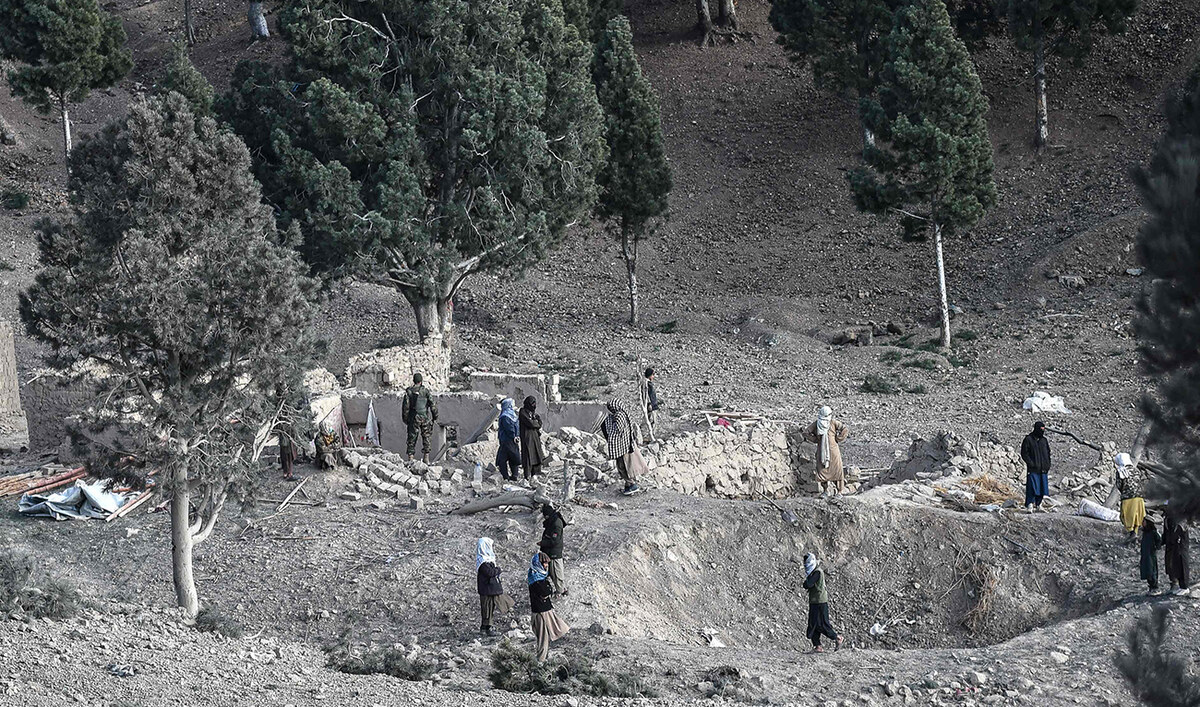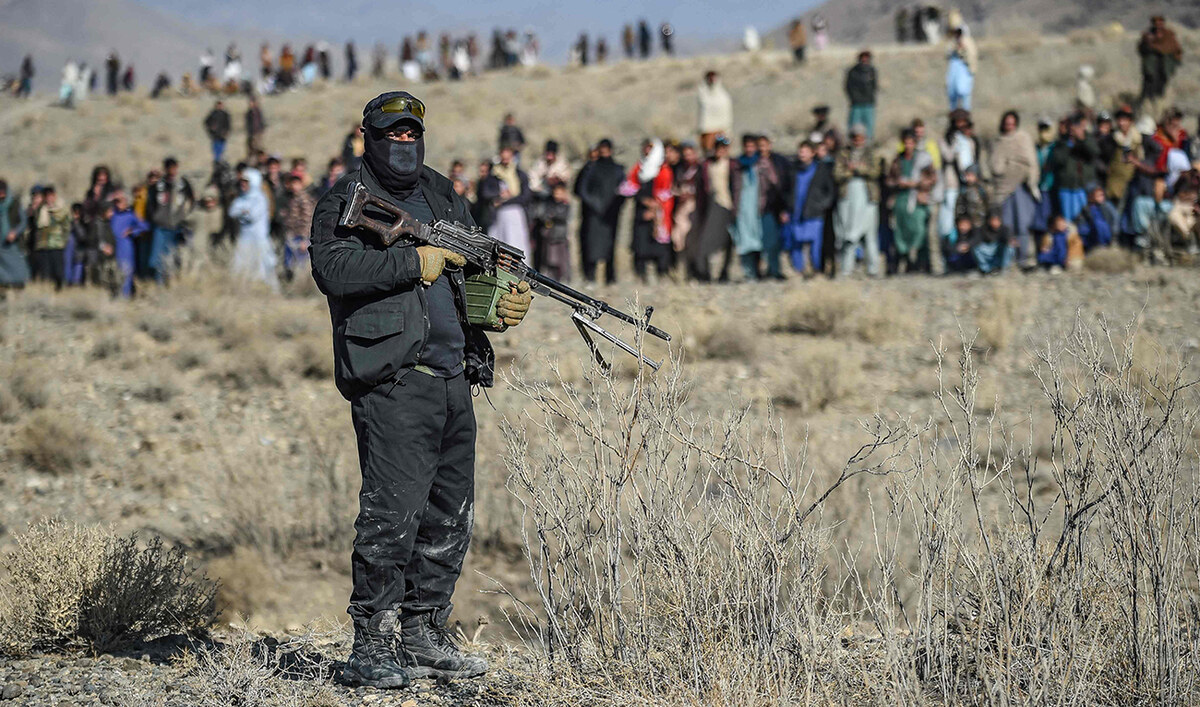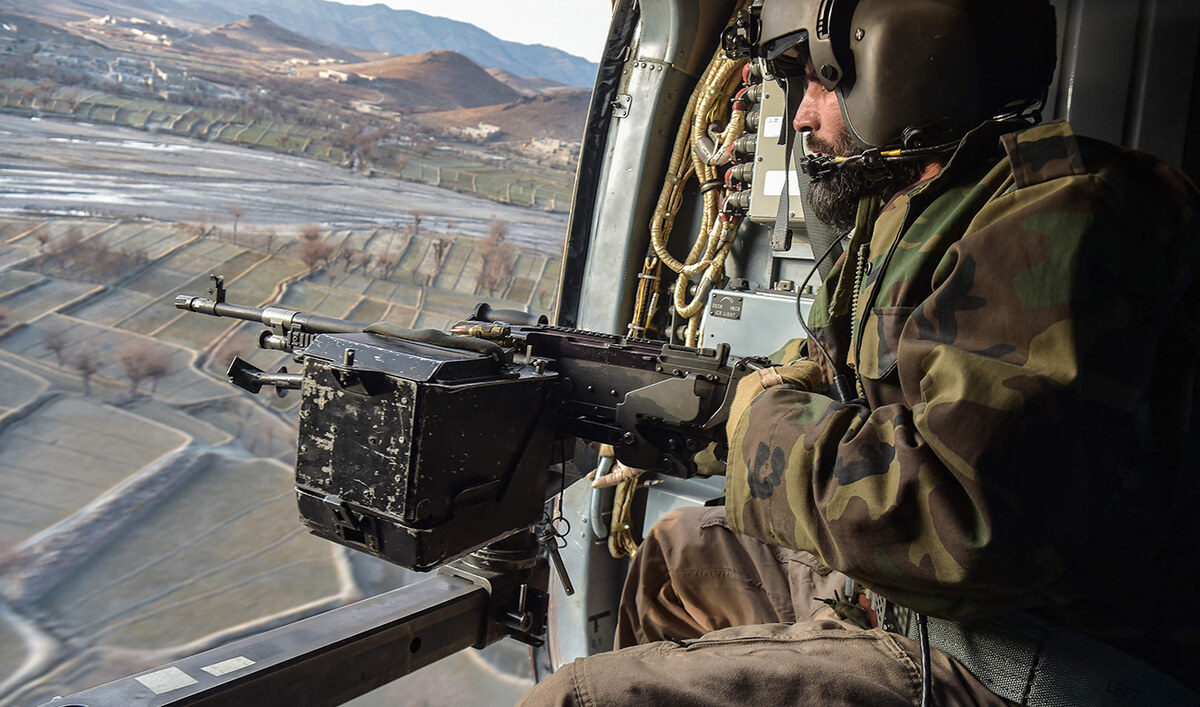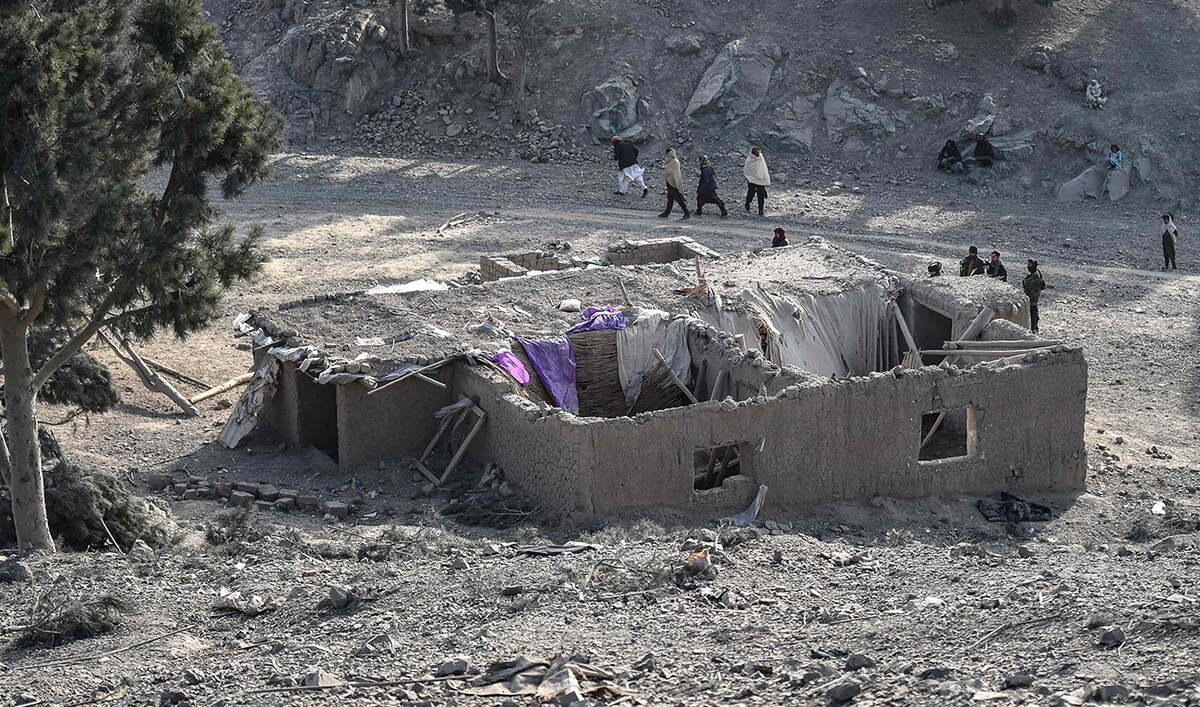KARACHI: Concerns are at peak over the health of Pakistan’s economy as foreign reserves run out, inflation stands at decades-high levels and industrial growth slows down, with experts and industry leaders raising alarm and calling on the government to take decisive action, particularly on a stalled IMF bailout plan.
The biggest worries center around Pakistan’s ability to pay for imports such as energy and food and to meet sovereign debt obligations abroad. Right now, foreign exchange reserves with the central bank stand at just $4.6 billion, barely enough to cover a month’s imports, compelling the government to restrict the import of goods, including industrial raw materials, to stop dollar outflows.
Before devastating floods last year, an estimated $33.5 billion was needed to fulfil external financing needs for the 2022-23 financial year, according to the central bank, to be arranged through the daunting target of almost halving the current account deficit and receiving debt rollovers from friendly countries.
But in the aftermath of the floods, exports have slumped and imports have grown to make up for essential commodities lost in the flooding of millions of hectares of farmland.
Meanwhile, the Pakistani rupee has weakened 20 percent since the start of the year and the decline in the currency is pushing up the cost of imports, borrowing and debt servicing, and in turn will further exacerbate inflation running already at a multi-decade high.
“The situation is alarming,” Tariq Yousuf, President of the Karachi Chamber of Commerce and Industry (KCCI), told Arab News. “More than 7,500 containers [of imports] are stuck at ports and our industries are facing an acute shortage of raw materials, bringing them almost to the verge of collapse.”
Last year, the cash-strapped country imposed a ban on the import of luxury goods to avoid a balance of payment crisis but lifted some of the restrictions after pressure from the industrial sector.
Experts warn that a dire dollar crunch in Pakistan may further hurt the import of essential items in the coming months and lead to a shortage of several food items. The fast-depleting forex stockpile has currently left banks refusing to issue new letters of credit (LCs) for importers, hitting an economy already squeezed by soaring inflation and lackluster growth. The central bank has also restricted overseas payments and halved the amount of foreign currency that a person can carry overseas to $5,000.
Qaiser Ahmed Sheikh, chairman of the standing committee of the National Assembly (NA) on Finance and Revenue, told Arab News Pakistan was in a “dire situation.”
“There are problems opening LCs, approved by the State Bank of Pakistan, affecting raw material imports.”
Without an LC as a financial guarantee to foreign exporters, import clearances rarely go through.
Sheikh said thousands of import containers were stuck at various ports, which was affecting the manufacturing industry and fueling a fear of industrial closure and further inflation hikes.
The inflation rate in Pakistan is already worryingly high, recorded at 24.5 percent in December 2022, double the figure from around 12 percent in December 2021.
“Both industrialists and the masses are concerned that commodity prices are rising on a daily basis,” Sheikh said. “The inflation will increase further if the State Bank of Pakistan does not allow new LCs opening and the clearance of older LC contracts.”
The situation is particularly precarious for the country’s pharmaceutical industry, currently left with only a few days of stock.
“Pharmaceutical industries keep inventory for three months, but since November 2022 raw material arrival has stopped due to the LCs issue,” Dr. Sheikh Kaiser Waheed, spokesman of the Pakistan Pharmaceutical Manufacturers’ Association (PPMA), told Arab News.
“Due to resource constraints, the drugs for diabetes, cardiac patients, cancer patients etc, are in short supply,” he said. “This shortage is also partly due to excessive buying by patients as precautionary measures after reports of the import situation came out.”
The economic strain has caused a number of textile units, car assemblers, and other industries to suspend or scale down their operations while fears of petroleum product shortage from next month loom, according to industrialists and government sources.
In a meeting with industrialists at the Federation of Pakistan Chambers of Commerce and Industry (FPCCI), the central bank governor this week announced that a joint committee would be set up with the FPCCI to resolve the “huge backlog in LCs,” according to a statement from the Chamber.
Pakistani senior economists interviewed by Arab News said the current economic situation was a result of the government’s “indecisiveness” with regards to negotiations with the International Monetary Fund (IMF).
A 9th IMF review to clear the release of the next tranche of funds to Pakistan has been pending since September.
“The economic situation of Pakistan is alarming … but the indecisiveness of government officials further compounds the situation,” Dr. Ashfaque Hassan Khan, a senior economist, said.
Current Minister of Finance Ishaq Dar and Minister of State for Finance, Aisha Ghaus Pasha, did not respond to requests for comment for this story.
“The only options before the government now are to either accept the IMF program (with all its conditions) or leave it,” Khan added. “Pakistan is now in a catch-22 position. The government ahead of the general elections would be reluctant to burn its political capital (by imposing more taxes and raising the rate of inflation).”
There is also talk of a mini-budget being announced to meet IMF conditions after its 9th review of the $7 billion IMF Extended Fund Facility (EFF).
“The government is negotiating with the IMF on an energy tariff increase and setting a market based exchange rate of the US dollar, which will increase inflation and there are discussions on the interest rate hike also,” Sheikh, the chairman of the NA standing committee, said.
“A mini-budget will be announced, as without it the IMF’s conditionalities cannot be fulfilled”.
The chairman denied having knowledge of the exact measures and proposed date of the mini-budget, amid speculation about a new petroleum levy and more taxes on imported and local vehicles.
“Hopefully ‘terms of engagement’ with the IMF finalized by the government of Pakistan are solid enough to finalize the 9th review,” Dr. Khaqan Najeeb, former adviser to the finance ministry, said.
“To get out of the present economic crisis, Pakistan must work on getting the IMF back, have a market determined exchange rate, rollover, reprofiling or restructuring of debt and effective social protection,” Dr. Sajid Amin, a senior economist, said.
With Pakistan’s economy in a tailspin, experts call for end to ‘indecisiveness’ on IMF program
https://arab.news/2s7cj
With Pakistan’s economy in a tailspin, experts call for end to ‘indecisiveness’ on IMF program

- More than 7,500 containers stuck at Pakistani ports create acute deficit of industrial, pharmaceutical raw materials
- Government may announce mini-budget to meet demands of the International Monetary Fund and break import deadlock
Pakistan installs first smog cleaning tower in Lahore for field testing

- Lahore, Pakistan’s second-largest city, often ranks among the most polluted places in world
- Smog towers are large-scale air purifiers that create localized zones of improved air quality
ISLAMABAD: Pakistan has installed its first locally designed smog cleaning tower in Lahore, a city that frequently ranks among the most polluted in the world during the winter season, the Environmental Protection Agency of Punjab announced this week.
Smog towers are large-scale air purifiers designed to reduce pollution by filtering out fine particulate matter and other harmful pollutants. Using fans, the towers draw in polluted air, which passes through high-efficiency filters to capture PM2.5 and PM10 particles, which pose severe health risks. The cleaned air is then released back into the surrounding area, improving local air quality.
While smog towers offer potential short-term relief, their efficacy in addressing large-scale urban air pollution remains debated.
“Pakistan’s first locally designed Smog Cleaning Tower installed in Lahore,” the provincial environmental agency said in a social media post this week. “A 15-day field test will be conducted to assess its performance for further installations.”
The smog tower, located in Mehmood Booti, is capable of purifying 50,000 cubic meters of air per hour and is designed to reduce harmful PM2.5 particulate matter.
Lahore, Pakistan’s second-largest city, suffers from severe air pollution during the winter, largely due to the phenomenon of smog. A combination of vehicle emissions, industrial output and crop burning in Punjab contributes to hazardous levels of fine particulate matter, with the city often topping global rankings for poor air quality.
Residents endure weeks of poor visibility, health warnings and respiratory illnesses as the Air Quality Index (AQI) frequently exceeds 300, categorized as “hazardous” by international standards. This year, the AQI reached unprecedented levels in several cities of Punjab, rising well over 1,000.
Smog towers can create localized zones of improved air quality, especially in high-density urban areas. However, they are expensive to build and maintain, with limited coverage areas.
Imran Khan says he declined house arrest, urges overseas Pakistani to halt remittances

- Ex-PM’s social media post hints at a backchannel offering him a ‘deal,’ without naming interlocutors
- Khan criticizes military trials and sentencing of supporters, says the proceedings violated basic rights
ISLAMABAD: Former Prime Minister Imran Khan, who has been in jail for well over a year, said in a social media post on Friday he rejected a house arrest deal, as he also urged Pakistanis abroad to boycott remittances in protest against the country’s political situation.
Khan’s statement comes only a few days after the government began formal negotiations with his Pakistan Tehreek-e-Insaf (PTI) party to address mutual differences and ease the country’s growing political polarization.
Talks began after Khan threatened civil disobedience, urging overseas Pakistanis to halt remittances unless the government freed PTI political prisoners and formed judicial commissions to probe violent protests on May 9 and Nov. 26, blamed on his supporters.
His latest message hints at a backchannel offering “a deal,” without naming interlocutors.
“The proposal I received for a deal was: ‘Negotiate with us, and we will give your party political space, but you will be placed under house arrest and moved to [your] Bani Gala [residence],’” read a message posted from Khan’s account on X, formerly Twitter.
“My response was that all other political prisoners must first be released. I would rather stay in jail than accept any deal. I will neither go into house arrest nor to any jail in Khyber Pakhtunkhwa,” he added, referring to the province ruled by his party.
Khan doubled down on his call for overseas Pakistanis to boycott remittances, framing it as part of a campaign for “true freedom and the restoration of democracy.” It is not clear how his stance might affect the ongoing negotiations between his party and the government.
“Currently, the government is playing ‘committee after committee’ regarding our demands,” he said, adding that the boycott campaign would be halted if negotiations produced positive results.
Khan also assured his supporters that the coming year would bring better prospects for democracy in the country while pledging to remain steadfast.
Criticizing military trials and recent sentencing of his party supporters arrested in the wake of the May 9 protest last year, Khan said they had violated basic rights of civilians and caused international embarrassment for Pakistan.
“If these trials had been conducted in open courts, the video footage of the events of May 9 would have had to be presented,” he said, adding transparent trials were also guaranteed in Pakistan’s constitution.
Hundreds of people carrying flags of Khan’s party attacked government and military installations last year on May 9 after he was briefly detained on corruption charges.
The government is yet to react to the former premier’s statement.
Pakistan using dual approach of diplomacy, military action against Afghan-based militants — analysts
Pakistan using dual approach of diplomacy, military action against Afghan-based militants — analysts

- PM Sharif says cross-border attacks from against civilians, security forces ‘unacceptable’ for Pakistan
- An Afghan analyst believes Pakistani airstrikes in his country can create sympathy for groups like TTP
KARACHI: Pakistan is using both political engagement and military action to counter militant groups operating from Afghanistan, analysts said on Friday, after Afghan authorities reported airstrikes conducted by Pakistani forces this week that killed 46 people.
The strikes, which targeted alleged hideouts of the banned Tehreek-e-Taliban Pakistan (TTP), came amid allegations by Pakistani officials of cross-border militant attacks, as extremist violence targeting civilians and security forces has surged more recently.
Afghan authorities claimed the victims included residents from Pakistan’s border regions, who were uprooted during military operations against TTP fighters in recent years, as the United Nations expressed concern over civilian casualties and urged an investigation.

While Pakistan has not officially confirmed the airstrikes, with both the foreign office and the military’s media wing declining to comment, Prime Minister Shehbaz Sharif said the TTP cross-border attacks constituted a “red line” for his government, asking Afghan authorities to take action against militants using their soil.
The reported airstrikes coincided with a visit to Kabul by Mohammad Sadiq, Pakistan’s special representative for Afghanistan, to discuss trade and regional ties.
“It seems that Pakistan wants to continue to talk to the Taliban while also flexing its military muscle, just as the Taliban did once they engaged in talks with the US,” Husain Haqqani, a former Pakistani ambassador, told Arab News.
He maintained that Pakistan’s military leadership believed its past support for the Afghan Taliban, when the US-led international forces were still operating in Kabul, would shield it from violent attacks, adding these armed groups did not consider any Muslim country “exempt from imposition of their extreme ideology.”
However, Sami Yousufzai, an Afghan political analyst, highlighted the delicate nature of Pakistan-Afghanistan ties, saying such strikes were viewed as a direct affront by Kabul.

“Afghanistan is particularly sensitive to invasions or attacks within its borders,” he told Arab News, acknowledging that the airstrikes resulted from growing pressure on Pakistan due to the surge in TTP attacks.
However, he maintained Pakistan had made errors of judgment relating to the timings of the attack, as one of its senior diplomats, Ambassador Sadiq, was in Afghanistan, and the number of civilian casualties.
Yousufzai informed that Afghan authorities had recently taken confidence-building measures at Pakistan’s request by relocating 200 TTP families from border areas to central Afghanistan, adding that the move had been undermined by the airstrikes.
“Afghanistan has little to lose, but as a more stable nation, Pakistan should avoid irresponsible actions,” he continued. “Such attacks will not eliminate the TTP. Instead, it will likely increase their support.”
He maintained the real issue was the TTP presence in Pakistan, adding that its fighters were even residing in districts like Bannu and Dera Ismail Khan, which do not share border with Afghanistan, though they have experienced several deadly attacks.

Mehmood Jan Babar, a Peshawar-based journalist specializing in Afghan and tribal affairs, argued the strikes did not derail diplomacy, as evidenced by continued meetings between Sadiq and Afghan officials, including Taliban Foreign Minister Amir Khan Muttaqi.
Asked about Afghan warning of consequences to Pakistan, he said: “Such speeches and statements are often for public consumption.”
Syed Khalid Muhammad, a security expert in Islamabad, dismissed the claims of civilian casualties, arguing that militants deliberately use civilian populations as shields.
“The key thing to understand about the Pakistani airstrikes on the TTP is that the militants have hidden themselves among the civilian population, much like every terror group globally, which serves a greater purpose for them,” he added. “It allows them to manufacture an alternative narrative to gain sympathy.”

Meanwhile, Pakistani military’s spokesperson Lt. Gen. Ahmed Sharif Chaudhry said his country had repeatedly pointed out to the Afghan government on state level that the TTP and other militants had been launching cross-border attacks in Pakistan in a news conference earlier today.
“Pakistan will leave no stone unturned in dismantling terrorist networks and safeguarding its citizens against terrorism,” he told the media without confirming the airstrikes.
Pakistani investigation agency says has arrested human smuggler with India links

- Five Pakistani illegal migrants were killed this month when their boat capsized near a Greek island
- FIA says suspected human smuggler worked with an Indian in Azerbaijan to send people to Poland
KARACHI: Pakistani authorities on Friday announced the arrest of a human smuggler from Karachi, accusing him of working with an Indian agent to illegally send people to Europe, as Prime Minister Shehbaz Sharif stressed the need to eradicate the practice while presiding over a meeting in the federal capital.
The arrest follows a renewed government drive against human smuggling after five Pakistani nationals died in a boat tragedy near the Greek island of Gavdos earlier this month.
Last year, the issue of illegal migration to Europe drew national attention when hundreds of people, including 262 Pakistanis, drowned after their overcrowded vessel capsized off the southwestern Greek coastal town of Pylos during a voyage from Libya.
The Federal Investigation Agency’s (FIA) announcement of the arrest of Abdul Shakoor, the suspected human smuggler, has brought yet another illegal migration route to Europe under the spotlight, as it said the accused collaborated with an Indian national based in Central Asia.
“An Indian agent named Gautam Sharma, residing in Azerbaijan, was coordinating the illegal transportation of the suspects from Azerbaijan to Poland,” the FIA informed, adding three other suspects, Hasib Ahmed, Qaiser Ahmed and Usman Ali, hailing from different areas of Punjab province, were also arrested.
“Human smuggler Abdul Shakoor had made agreements to send the other suspects to Poland, charging $5,028.89 per person,” the statement added. “The suspects paid the agent an advance of $898.02 per person.”
The FIA also named the organizations that helped the suspects obtain visas.
Separately, the prime minister chaired a review meeting on measures to curb human smuggling, wherein he reviewed the report of a committee formed to investigate the latest migrant boat tragedy near Greece and present its findings.
Sharif instructed the formation of a committee, led by Interior Minister Mohsin Naqvi, to develop sustainable solutions for tackling human smuggling.
“The Prime Minister directed that all individuals involved in the heinous human smuggling trade be arrested within a week and legal action be taken against them,” said an official statement circulated by his office after the meeting.
The prime minister questioned why no disciplinary action had been taken so far against complicit government officials facilitating smugglers and directed authorities to ensure stricter visa checks and compliance with travel regulations for all outbound migrants.
The meeting was also provided an update on the identification of Pakistani nationals involved in the boat capsize near Greece this month and the progress of repatriating their bodies.
Pakistan rescues nine crew members from Indian cargo vessel after distress alert

- The rescue followed another operation this month in which 12 Indian crew members were saved
- Incident reflects sporadic cooperation between the two nuclear rivals amid continuing tensions
KARACHI: The Pakistan Maritime Security Agency (PMSA) successfully rescued nine crew members from an Indian cargo vessel, according to an official statement, after receiving a distress alert from Mumbai.
The incident marks the second such rescue operation by the PMSA within a month, highlighting sporadic cooperation between the two nuclear-armed rivals amid continued tensions.
Diplomatic ties between India and Pakistan remain strained. Both sides also detain each other’s fishermen who inadvertently cross maritime boundaries, often leaving them to languish in prison for extended periods.
The distressed Indian vessel, Tajdare Haram, reportedly experienced water ingress approximately 120 nautical miles south of Karachi, forcing the crew to abandon ship and take refuge in a life raft.
“Upon receiving the distress alert from the Maritime Rescue Coordination Center (MRCC) Mumbai, PMSA immediately launched a coordinated rescue effort,” the Pakistani agency announced in a statement Thursday.
“PMSA deployed an aircraft and directed nearby merchant vessels and PMSA ships to the scene of the incident,” it added. “The PMSA aircraft successfully located the survivors and facilitated the Indian Coast Guard vessel operating in nearby Indian waters for subsequent recovery.”
The rescue followed another operation earlier this month when the PMSA saved 12 Indian crew members from MSV Peeran-e-Peer in a similar situation.
The PMSA said it remained steadfast in its commitment to ensuring maritime safety and upholding international obligations under the Safety of Life at Sea Convention.









